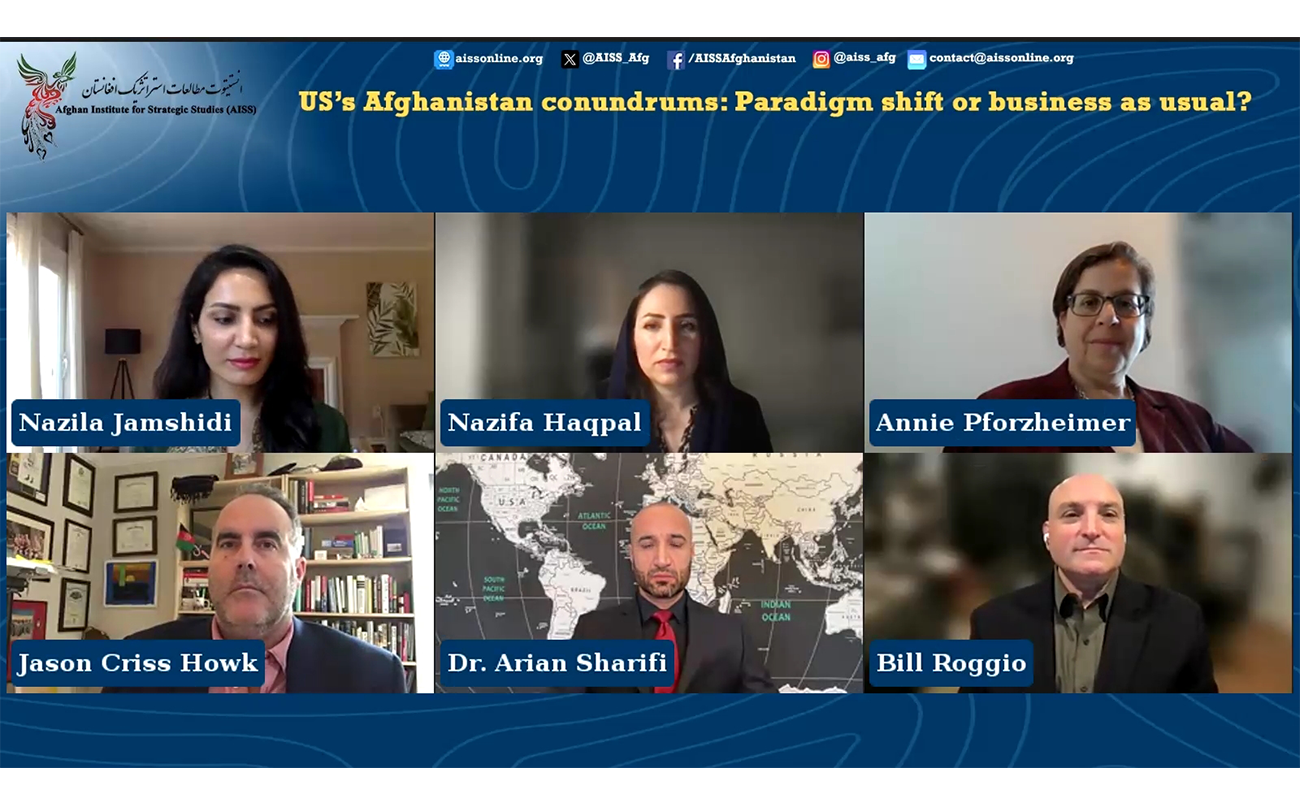Webinar: The US’s Afghanistan Conundrum: Paradigm Shift or Business as Usual?
On November 11, 2024, the Afghan Institute for Strategic Studies (AISS) hosted a webinar on the complex and often fraught relationship between the US and Afghanistan. The webinar discussed whether the evolving political landscape in the US might signal a true paradigm shift or simply a continuation of business as usual. Experts explored the implications of possible changes in US leadership, particularly regarding human rights, regional stability, and counterterrorism, as they affect Afghanistan's uncertain future.
Moderator Nazila Jamshidi set the scene by acknowledging Afghanistan’s ongoing struggle for a stable future, calling it “a nation the world still has yet to fully understand and support.” She questioned whether Afghanistan, amid shifting US political winds, would remain a priority or fade further from international focus.
Annie Pforzheimer, a former State Department diplomat, shared a candid perspective, suggesting Afghanistan may not garner much attention from a new US administration. She described recent criticisms of the US withdrawal as “politically convenient” rather than sincere, noting that the Afghan people might be best served by leading their own advocacy rather than waiting for American involvement. She also raised concerns over potential cuts to humanitarian aid as US domestic politics continue to take precedence.
Nazifa Haqpal, once a diplomat at the Afghan Embassy in London, pointed out a possible split between US and European approaches. While the EU and UK often align with the US, she said, they might choose a “conditional engagement” strategy with the Taliban if the US takes a hardline approach that isolates Afghanistan. “The EU is taking a more principle-based approach,” she added, highlighting recent EU resolutions condemning gender apartheid and supporting asylum for Afghan women.
Jason Criss Howk, a seasoned national security expert, spoke on the crucial role of Afghan diaspora advocacy and the impact veterans could have on policy. He emphasized the limited window for the diaspora to make a difference before they fully integrate into host countries. Howk encouraged coordination with veterans’ groups in Congress, suggesting that leaders with personal ties to women’s rights might be more open to listening. “People should be writing, doing interviews, and keeping the conversation alive, especially in media read by those in power,” he said.
Dr. Arian Sharifi, a researcher at Princeton University, acknowledged the Taliban’s firm hold on Afghanistan but suggested the US could maintain a minimal diplomatic and intelligence presence. He argued that Afghanistan’s location remains crucial for US interests in countering regional powers like China, Russia, and Iran. Dr. Sharifi proposed a “conditional engagement” model, with the US pushing for specific Taliban concessions, such as a constitution-based government.
In stark contrast, Bill Roggio of the Foundation for Defense of Democracies argued vehemently against engaging the Taliban in any way. “The Taliban don’t want recognition; they want power,” he stated, insisting that diplomatic engagement only serves to legitimize their rule. Roggio advocated supporting Afghan resistance forces, drawing a parallel to US backing of the Mujahideen in the 1980s, and underscored the need to isolate the Taliban internationally. He suggested closer ties with India to pressure Pakistan into curbing its support for extremist groups, a strategy he felt would destabilize Pakistan’s influence over the Taliban.
At the conclusion of the webinar, moderator Nazila Jamshidi summarized the discussions, highlighting key points from each speaker's diverse perspectives.

